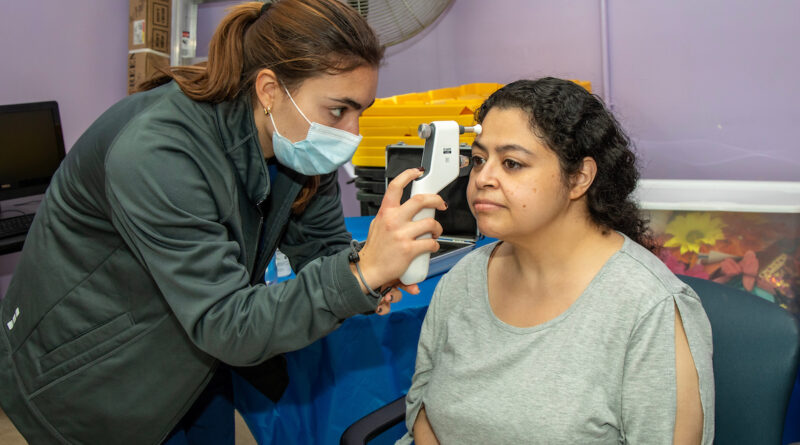Keeping an Eye on Eye Health
Thanks to the Manhattan Vision Screening and Follow-up Study, over 700 NYCHA and PACT residents age 60 and older have had free eye health screenings at their developments to help them take care of their eyes and prevent vision loss.
The study, conducted by researchers from Columbia University’s Vagelos College of Physicians and Surgeons Department of Ophthalmology, began in 2021 and has screened 708 NYCHA residents, referred almost 470 adults over age 40 for follow-up eye care, and diagnosed 189 cases of glaucoma or suspected glaucoma (83 of those already had pre-existing glaucoma and wanted to participate). The goal of the five-year study is to improve access to eye care for low-income and vulnerable communities and determine if vision screening where people live improves the detection and management of vision impairment and eye diseases. The study considers social determinants of health related to eye health equity and is funded by the Centers for Disease Control and Prevention, in partnership with NYCHA and the NYC Department for the Aging. The study team is conducting 12-month follow-up eye health screenings with residents through May 2023.
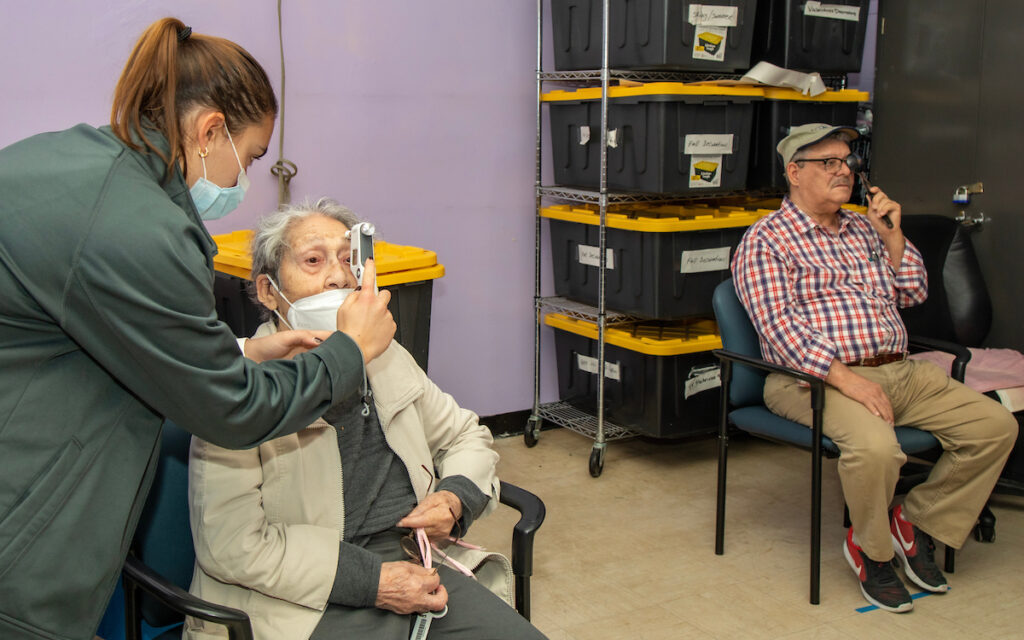
The eye team checks vision and eye pressure and photographs the back of the eye so ophthalmologists can look at the retina and optic nerve. An optometrist provides an eyeglasses prescription or free eyeglasses, if necessary, which are delivered to the development or senior center. If a resident has an abnormal screening or eye exam, they’re referred for follow-up at Columbia Ophthalmology or Harlem Hospital Ophthalmology.
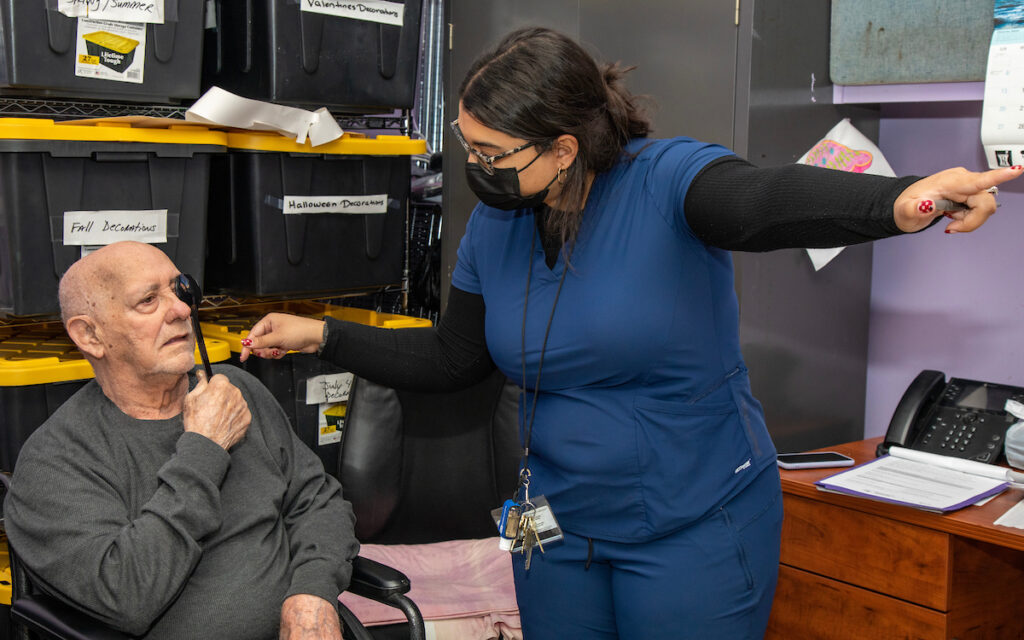
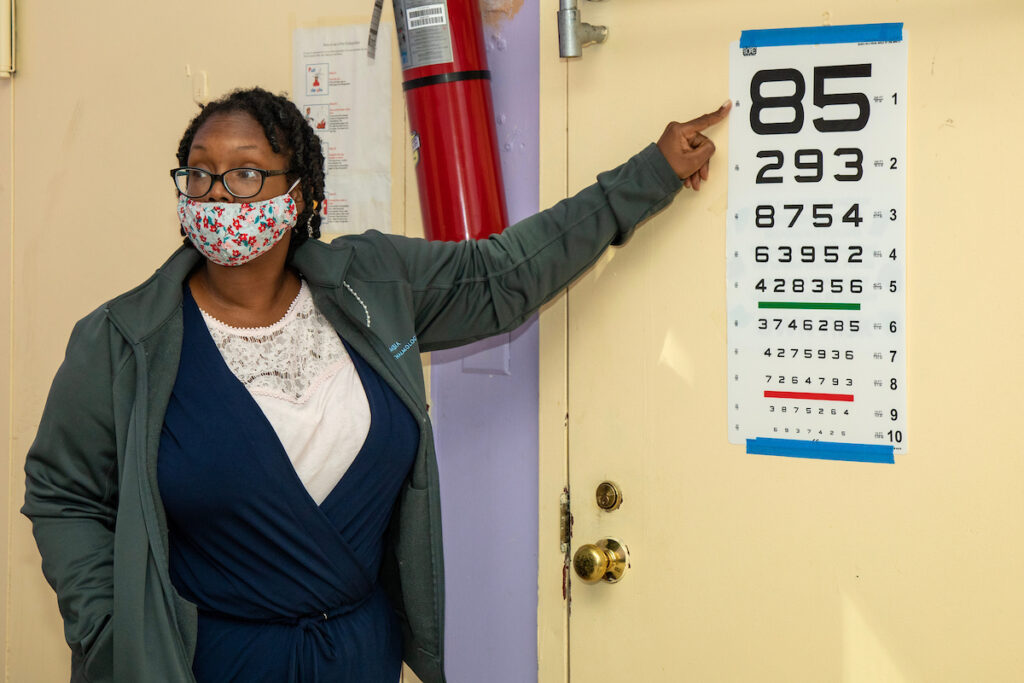
Michael Simmons, 68, is a Fort Washington Avenue Rehab resident who was diagnosed with glaucoma through the screening and seen the same day across the street at Columbia Ophthalmology for very high eye pressure. “They’ve made me very aware and probably saved my vision,” Mr. Simmons said. “I like when they come to the building and give us tests. They gave me glasses, eye drops to take every day, and made me more aware of the things going on with my eyes and what I should do, like eat more green vegetables. I feel better about myself, and I know this will help me keep my eyesight for as long as I possibly can so I can be functional, read my papers, drive, and see this beautiful world for what it is.”
In addition to residents of Fort Washington Avenue Rehab, screening has been provided to residents of Drew-Hamilton, Lincoln, Polo Grounds Towers, St. Nicholas, Audubon, Bethune Gardens, Marshall Plaza, Public School 139 (Conversion), and Rangel Houses.
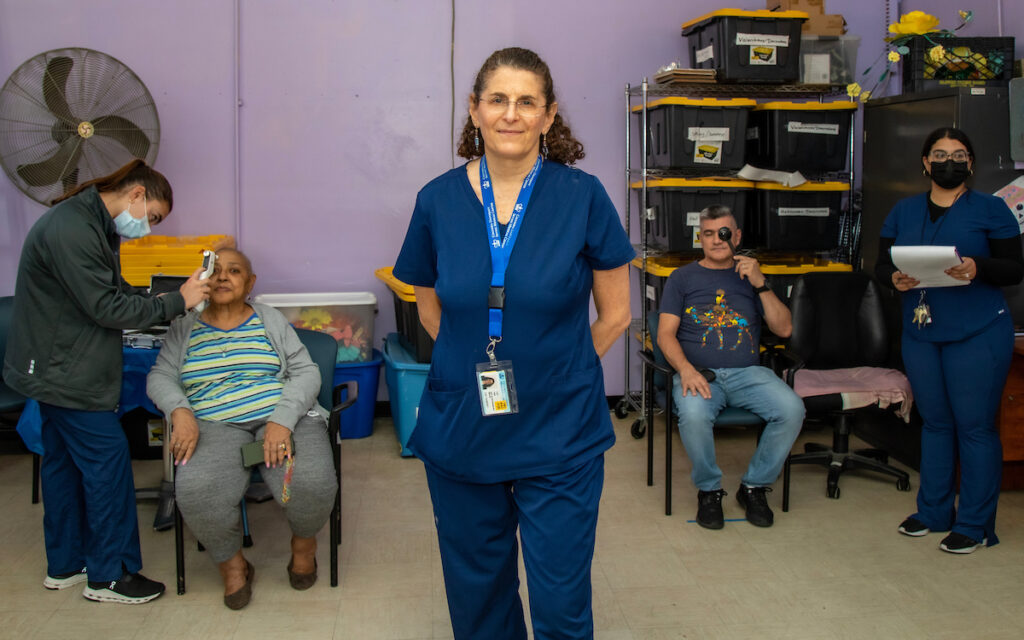
Dr. Lisa Hark, Professor at Columbia University, designed the study to make eye exams more convenient. She said that about 78 percent of participants did not pass their vision screenings, mostly due to glaucoma or vision impairment. “Don’t put off your eye check-up, don’t wait, don’t take your eyes for granted, especially if you have high blood pressure or diabetes – these things can cause blindness,” Dr. Hark said. “Blurry vision can affect your quality of life and also increases your chances of falling.” Dr. Hark also urged program participants to attend their 12-month follow-up screening.
November is National Diabetes Awareness Month and January is Glaucoma Awareness Month, reminders that now is a good time to schedule an eye exam. Dr. Hark provided tips for NYCHA residents not involved in the program: “If you’re age 40 and over, you should have an eye exam annually. If you have any risk factors (such as diabetes, high blood pressure, family history of glaucoma, being African American or Hispanic, or falling in the past year), you have to take care of your eyes so you can preserve your vision. There are many things that can go wrong besides needing glasses and there are many things you can prevent by catching them early. You need a dilated eye exam, where drops are put in your eyes to open your pupils so that the eye care provider can get a good look in the back of your eye to see your retina and your optic nerve.”
Dr. Hark recommends that people with diabetes should see an ophthalmologist who specializes in retina. Dr. Hark said she has seen patients with diabetes who didn’t understand why their eyes are affected: “Your eyes are filled with tiny blood vessels and when your sugar is high, the vessels leak blood, which damages the vessels. Most people think of diabetes affecting their kidneys or their feet, but it affects your eyes a lot more.”
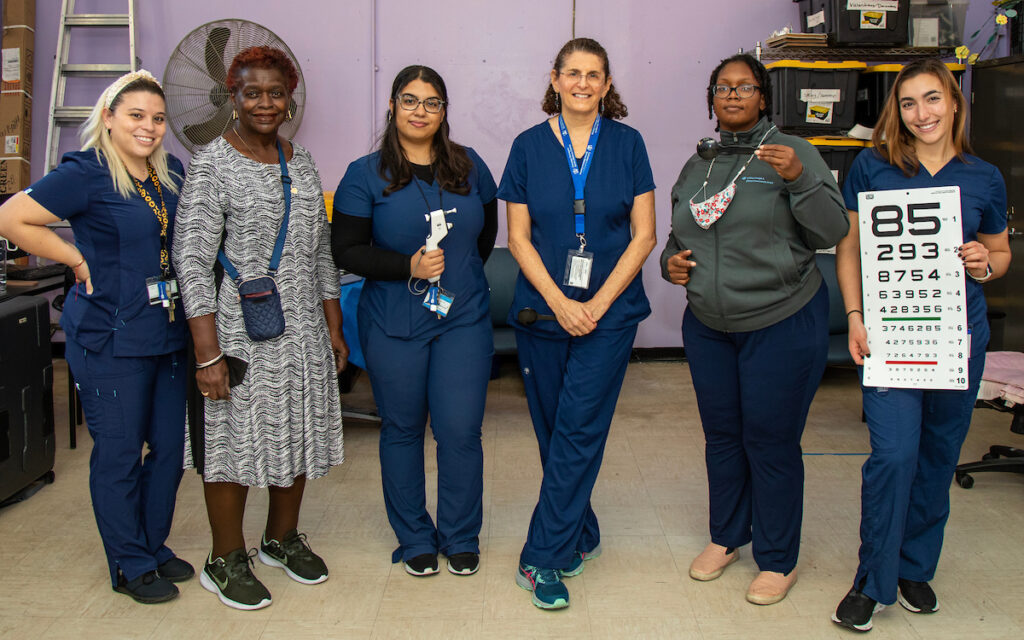
Learn more about the study by visiting Sightstudies.org. Watch a video about the eye screening study here:

